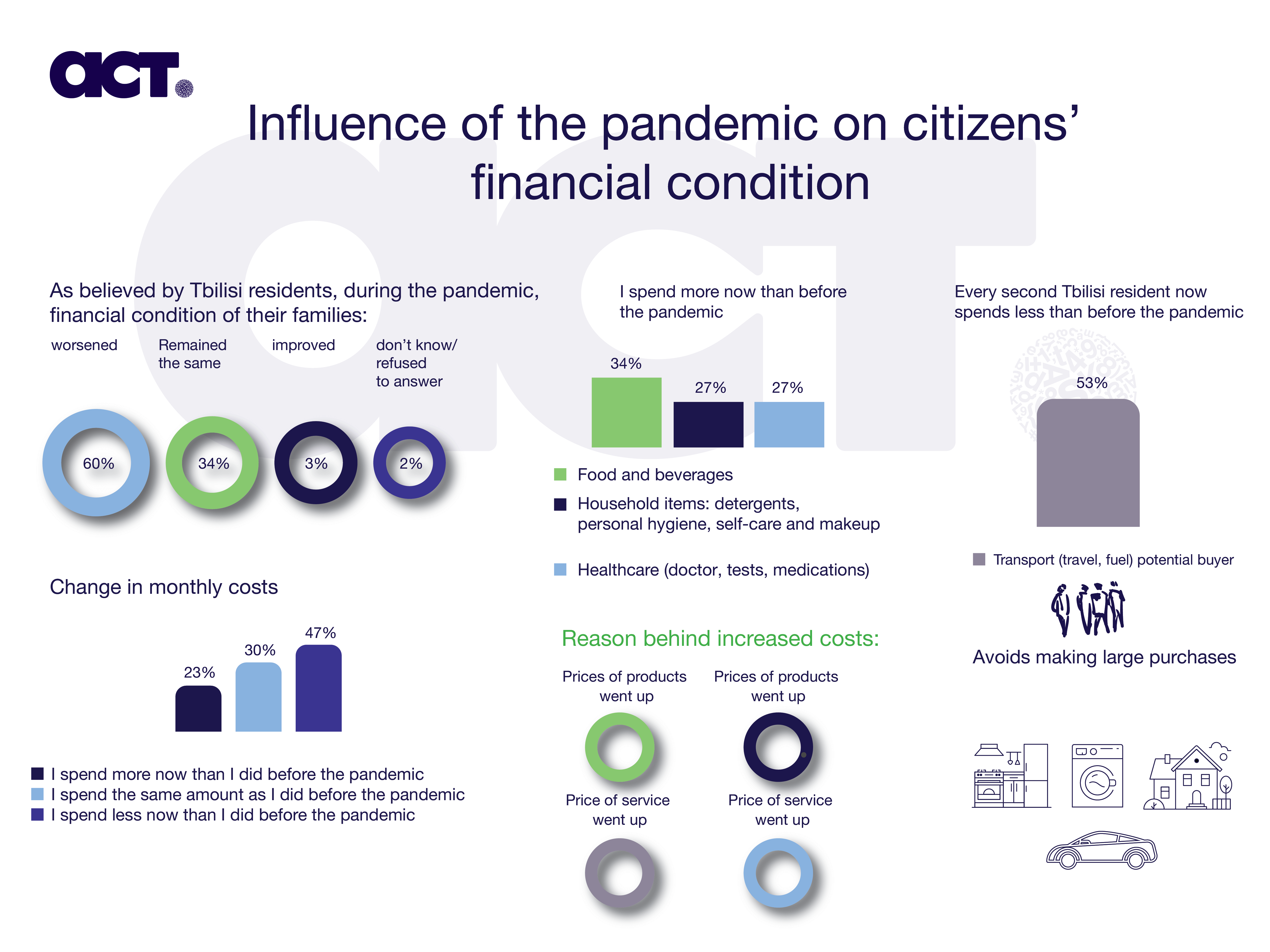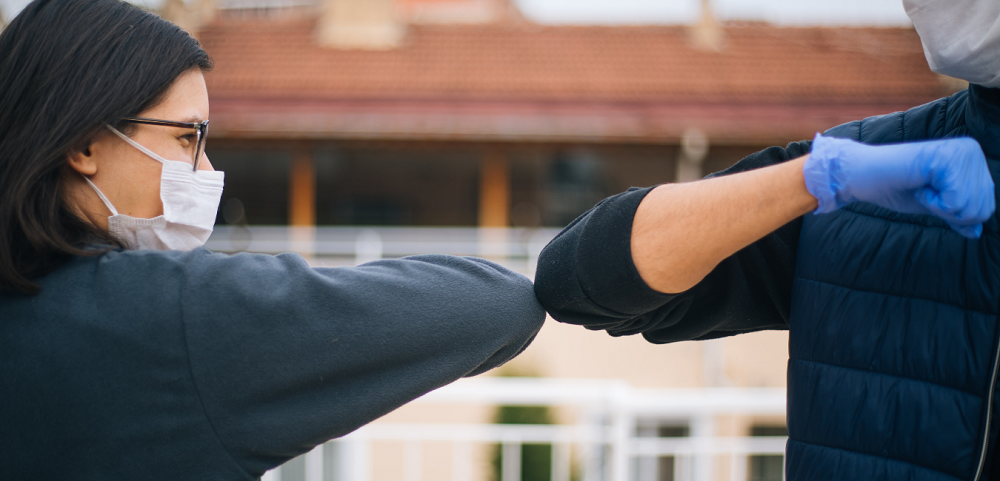The COVID-19 pandemic significantly affected people’s lifestyle and financial condition. According to the study conducted in the end of 2020, in the month of December, 60% of respondents reported on worsened financial condition of their family. 34% of respondents believe that their financial condition has not changed, while 3% reported on improved financial situation.
Cutting costs is noticeable in the perspective of monthly expenses, during the pandemic, 47% of respondents spend less than before the pandemic. 30% of respondents spend the same amount of money as they used to before the pandemic and 23% of respondents now spend more than before the pandemic.
It is worth mentioning that the majority of respondents – 34% now spend more on food and beverages. 27% of respondents now spend more on household essentials (detergents, hygiene, self-care items), as for the healthcare costs (doctor, tests, medications), the 27% of respondents now spend more. the majority of respondents (75%) explain that they have to spend more because prices of products went up.
Every second respondent now spends less on transportation (transportation fee, fuel). As for large purchases (apartment, summer house, furniture, car, household appliances), six out of ten potential buyers avoid making large purchases.

The inquiry was conducted through random sampling with 403 adult residents of Tbilisi on December 11-13 of 2020. Statistical error of data does not exceed 4.9%. Utilized method – telephone interviewing.






